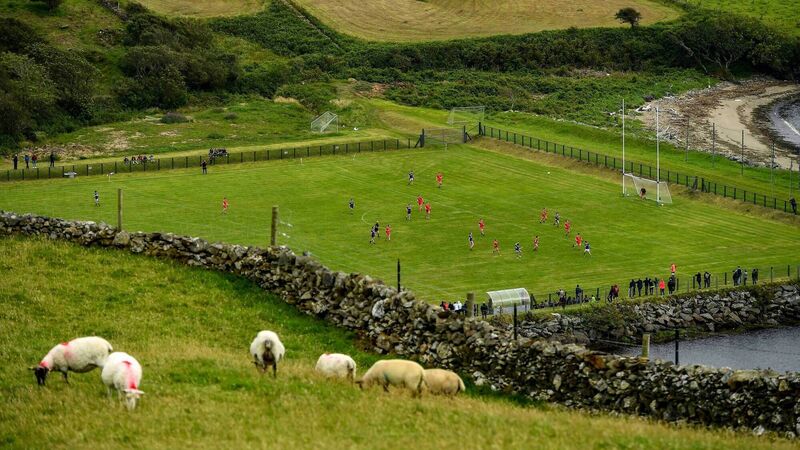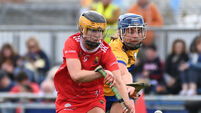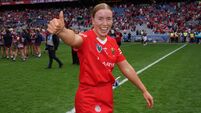Eimear Ryan: Might a post-pandemic GAA world see a rural revival?

Kilcar GAA Club's Towney Park pitch pictured during a Donegal County Divisional League Division 1 Section B match against Killybegs last July. Photo by Seb Daly/Sportsfile
‘Just want to play camogie, don’t want to do anymore burpees in my room. GO AWAY COVID.’
So tweeted Niamh Donnelly of McQuillan camogie club in Ballycastle, Co Antrim last month. At the time of writing, it has 564 likes; Donnelly’s words struck a chord.











